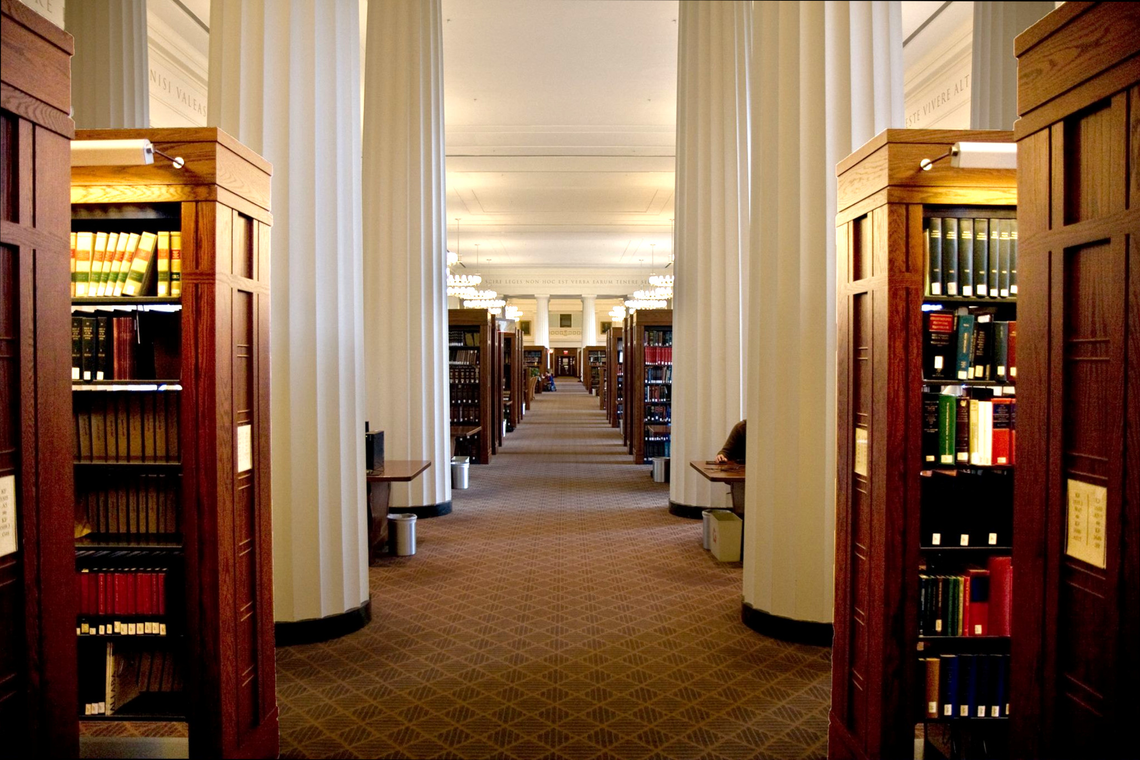Apply to a foreign university with confidence
- Properly fulfilled documents
- Perfect motivation letter
- Support from a personal mentor
- Offers from several universities
Article score: 5 out of 5 (1 review)
If you are planning to study law in Russia or abroad, it is important for you to know which university to choose, what is the average cost of studying in different countries, what are the requirements for admission and how to get financial aid. We will go into detail about these and other nuances.
Free consultation



Legal education abroad is distinguished by the high cost and difficulty of studies. Moreover, it is often necessary to pass several exams before you could start working in a specialty, for example, in the USA and Canada. An important factor when applying for a law program is a high level of language proficiency. If a student plans to stay in the country of study, it is necessary to know the local language perfectly for further employment.
To become a lawyer, you must be able to convey and defend your point of view, think analytically and critically, have writing and research skills, persistence and creativity. In turn, the profession of a lawyer has many advantages:
Much depends on the place of work, but often lawyers overwork, especially in high-paying positions, speak in public and regularly read tons of literature and regulations.
Judges, lawyers, civil servants, teachers in universities, consultants at companies and mediators in disputes — these are just a few examples of positions for specialists in the field of law.

| # | University | Country |
|---|---|---|
| 1 | Harvard Law School | USA |
| 2 | Oxford Law Faculty | UK |
| 3 | University of Cambridge, Faculty of Law | UK |
| 5 | Stanford Law School | USA |
| 6 | LSE Department of Law | UK |
| 7 | UC Berkeley School of Law | USA |
| 8 | Columbia Law School | USA |
| 9 | NYU School of Law | USA |
| 10 | Melbourne Law School | Australia |
View a list of the best law schools in other countries here.
Items 1-6 of 10
Advanced searchItems 1-6 of 10
Advanced search
When choosing a country to receive legal education, it is necessary to keep in mind the differences between general and civil law. Another important factor is your future place of residence, as the curriculum is based on the legal system of the country of study. Universities also put high language requirements, because a lawyer deals with papers, speeches and constant communication.
Path to a law degree in the United States and Canada is unique and unlike any other country. There is no bachelor's degree in law — it is believed that a student must first gain life experience and knowledge in other areas before pursuing legal studies. It is preferable to come with a background in political sciences, economics or sociology, but young specialists from all fields can enroll in legal programs. During their studies, students need to develop public speaking, analytical, writing skills and critical thinking.
Thus, for admission, a foreign student must already have a bachelor's degree in any specialty. Upon completion of the undergraduate degree, applicants must register with LSAC and pass the LSAT (Law School Admission Test). Based on the results of the exam, the language certificate and other documents, students enter the three-year Juris Doctor (JD) program. If a foreign candidate is a Bachelor of Laws, then he can immediately enter the Master of Laws (LL.M.), as a rule, without passing the LSAT. Admission to LL.M. is easier than to JD, since LSAT score requirements are high, and for foreigners this is one of the most difficult exams. However LL.M. does not provide an opportunity to obtain a license after graduation. Therefore, if you are going to become a practicing lawyer in the USA or Canada, then JD is required. For more information on the conditions for obtaining a legal license in Canada, please read this, in the USA — this.
An important factor is tuition fees. In the United States, JD has the opportunity to receive financial aid from law schools, and for LL.M. it is advisable to look for funding from external sources.
It is difficult to enroll in a law school, but it is even more difficult to study there. During the study breaks, students are already actively seeking internships and part-time jobs in the legal field. However, even after graduation, it is still impossible to practice law. To obtain a license, you must pass a qualifying exam (bar examination). In Canada, additional evaluation stages must be passed in addition to the exam. They depend on the province, for example, in Ontario you must:
In the United States, newly minted lawyers choose the state in which they are going to work and register for the exam with the state council. The Bar exam lasts 2, sometimes 3 days, it is imperative to thoroughly prepare for it. After a successful examination, the specialist can begin to practice law.
The next steps in education: Master's degree — Master of Laws (LL.M.) and doctoral studies — Doctor of Juridical Science (SJD) The master's degree usually takes 1 year to complete and is aimed at a narrow specialization. Doctoral studies last for 2-5 years and open up opportunities in academic careers and teaching.
It should be noted that legal education in the USA has a narrow specialization in comparison to other countries: here students focus on their area of law.
Legal education in the United Kingdom is divided between the common law system of England, Wales and Northern Ireland, and the hybrid common law system in Scotland. The first stage in education is:
Further, education is divided into areas of future lawyers: solicitor and barrister. The difference between them lies in the responsibilities they perform.
Solicitors provide legal support, advice and services to clients, while barristers represent individuals or organizations in court, conduct legal research and advise clients. Solicitors are considered lower rank lawyers as they handle paperwork most of the time and act as intermediaries between the client and the barrister.
To become a solicitor, you need to take a Legal Practice Course, (LPC) or a Solicitor Apprenticeship, which lasts 6 years and includes the entire legal degree program and LPC. The internship allows students to obtain a Master of Laws (LL.M.). To become a barrister, you must complete all 3 components of training:
International students also go through all these stages. Lawyers that graduated from non-British universities, are eligible to pass the GDL and after it LPC or BPTC. More information can be found here or on the Solicitors Regulation Authority website.
To enroll in an Australian law school, you need 12 years of secondary education. Some universities offer a Foundation course, after which students with 11 years of school study enter the Bachelor of Laws, LL.B., sometimes Juris Doctor, JD. It can last for 3 years if the candidate already has a degree and 4 years for high school graduates.
To become a professional lawyer, you must also complete practical legal training. Master's and doctoral degrees are available for further professional and academic development.
Studying law in the Netherlands begins with obtaining a Bachelor of Laws degree (LL.B), which lasts for 3 years. Then comes the Master of Laws( LL.M.) degree, lasting 1 year. In English, a bachelor's degree is offered by 4 universities: the University of Groningen, the Hague University of Applied Sciences, Maastricht and Tilburg universities.
In Russia, as in other CIS countries, legal education can be obtained at universities and colleges. However, universities are more prestigious and offer more job opportunities. The decision on the specialty of the student must be made in advance: for admission to a law program, universities take the Unified State Exam only in social studies or history. Further, the career of a lawyer can follow different scenarios, depending on the specialization. For example, to become a notary, you need to pass a qualifying exam, a lawyer — have work experience and also pass special exams.
Requirements for admission differ depending on the country, university and program. General criteria are as follows:


| # | University | Country | Bachelor’s/year | Master’s/year |
|---|---|---|---|---|
| 1. | Harvard University | USA | 65,875 USD | 65,875 USD |
| 2 | University of Oxford | Great Britain | 36,127 USD | 47,018 USD |
| 11 | University of Chicago | USA | 68,652 USD | 66,651 USD |
| 12 | National University of Singapore | Singapore | 20,521 USD | 27,046 USD |
| 13 | University of Sydney | Australia | 27,917 USD | 22,841 USD |
| 20 | University of Toronto | Canada | 38,879 USD | 32,059 USD |
| 34 | Universiteit van Amsterdam | Netherlands | 10,068 USD | 18,645 USD |
| 35 | Monash University | Australia | 26,648 USD | 28,234 USD |
| 40 | University of British Columbia | Canada | 26,784 USD | 24,805 USD |
| 43 | Chinese University of Hong Kong | Hong Kong | 18,696 USD | 18,196 USD |
| 46 | Northwestern University | USA | 68,500 USD | 71,668 USD |
| 50 | University of Auckland | New Zealand | 21,717 USD | 21,926 USD |
| 51-100 | University of Manchester | UK | 19000 GBP | 19500 GBP |
| Country | University | Programs | Cost/year |
|---|---|---|---|
| Lithuania | Vilnius University | Master of International and European Law | 3,390 USD |
| Germany | Humboldt-Universität | International Dispute Resolution (LL.M.) | Free |
| France | Sciences Po | Master in Economic Law | 16,611 USD |
| USA | University of the District of Columbia | Doctor of Laws | 24,874 USD |
| Italy | Saint Anna School of Advanced Studies of Pisa | Master in Human Rights and Conflict Management | 8,475 USD |
| France | Catholic University of Lyon | Master in International Business Law | 10,170 USD |
| Belgium | Katholieke Universiteit Leuven | Master of Laws | 6,780 USD |
| Ireland | Maynooth University | Bachelor of Law | 15,820 USD |

| No | Country | University | Program | Bachelor’s/year | Language |
|---|---|---|---|---|---|
| 43 | Germany | University of Munich |
| Free | German |
| 47 | Argentina | University of Buenos Aires |
| Free | Spanish |
| 47 | Brazil | University of São Paulo |
| Free | Portuguese |
| 49 | Taiwan | National Taiwan University | Bachelor of Laws | 1,552 USD | Chinese |
| 51-100 | Germany | Free University of Berlin | Bachelor of Laws (LL.B.) | Free | German |
| 51-100 | China | Fudan University |
| 50000 RMB | Chinese |
| 51-100 | Japan | Kyoto University | Law | 3,746 USD | Japanese |
| 51-100 | Russia | Lomonosov Moscow State University |
| 5,447 USD | Russian |
| 51-100 | Italy | University of Rome La Sapienza |
| 1,130 USD | Italian |
| 51-100 | Spain | Complutense University of Madrid |
| 12,430 USD | Spanish |
| Country | Duration | University | Language of Instruction | Cost |
|---|---|---|---|---|
| United Kingdom | 1 year | Oxford Brookes University | English | 18,405 USD |
| Malaysia | 1 year | Management and Science University | English | 4,534 USD |
| United Kingdom | 1 year | University of Westminster | English | 18,537 USD |
| Netherlands | 1 year | Maastricht University | English | 15,820 USD |
| Ireland | 1 year | Trinity College Dublin | English | 18,622 USD |

| Program | Description |
|---|---|
| Jurisprudence | Generally, programs include constitutional and administrative law, contract law, criminal and civil law, private and public law. The study examines the jurisdiction, laws and regulations of the country in which the study is taking place. |
| International law | A set of rules, norms and standards generally accepted in relations between nations. Countries come together and formulate laws and regulations on a wide range of issues. However, as a rule, international law is advisory in nature, so the governments of the countries independently decide whether to implement and abide by international laws or not. |
| Business / commercial / entrepreneurial law | Regulates business relations between people. There are 2 different areas of business law:
|
The trend in the labor market is that due to the high competition among general lawyers, employers need more highly specialized professionals. In addition, the development of technology and modern problems of humanity are making their own adjustments to the formation of demanded specializations. For example, robotization of the sphere of law is gradually being introduced, namely, programs and systems that perform routine work: search and analysis of information, drafting contracts and claims. So in 2017, artificial intelligence replaced about 70% of all mid-level management staff working at Sberbank which also included lawyers[1].
| Program | Description | Estimated position / job | Universities |
|---|---|---|---|
| Environmental Law | Regulates human interaction with the environment from a legal standpoint, determines who and under what conditions can use natural resources, and develops environmental requirements for business activities. |
| University of Eastern Finland, University of Dundee, University of Groningen, Vrije Universiteit Amsterdam, Keele University |
| Cyber Law (Internet Law) | Regulates relations related to the Internet. Any law or regulation related to the way people use computers, smartphones, the Internet and other related technologies is classified as cyber law. |
| Loyola Marymount University, University of Johannesburg, Universidad de Leon |
| Intellectual Property Law (Copyright Law) | Enforces legal rights for inventions, creations and works of art. |
| University of Melbourne, Hanken School of Economics, UNH Franklin Pierce School of Law, Jagiellonian University, BAUMAN Moscow State Technical University, University of Technology Sydney |
Such degrees are designated differently from country to country. Bachelor’s degrees are usually called:
Some regions offer both types of degrees (LL.B. and JD), such as Australia and Hong Kong.
Master of Laws (ML or LL.M.) — a postgraduate degree for those who already have an academic degree in law / professional degree in law / bachelor's degree in a related subject. In some jurisdictions, the Master of Laws is a required professional degree to begin legal practice.
Doctor of Law or Doctor of Laws. The name also depends on the country:
Juris Doctor (JD) is a professional degree in North America. JD has academic status as a Professional Doctor in the United States and a Master's degree in Australia.

Free law education can be found in countries that do not charge tuition fees. For example, in Germany, Austria and Norway, but there most programs are taught in the local language instead of English.
Another opportunity to study for free is scholarships and grants from the country of study. For example, the Turkish government offers the Turkey Burslari Scholarship, which covers 100% of the tuition fees and other expenses. Also Hungary provide free education to talented students through grants from Stipendium Hungaricum. In Sweden, all PhD programs are free, among which you can find legal programs.
There are general and separate scholarships for law students from the universities themselves. For example, Dean’s Scholarship from the Faculty of Law, University of Sydney or grant CAHR at the University of York in the UK. Additionally, various competitions are held, for example, for writing an essay. Typically, they offer a one-time amount to help cover small expenses.
You can track current opportunities here and on the websites of universities.

The career path in law largely depends on the country of study and further residence. In some countries, for example, in Canada and the USA, one cannot become a lawyer immediately after graduation — you must first pass the exams.
Despite the fact that the profession of a lawyer is popular among applicants, and the number of graduates is increasing every year, private and state structures almost always have vacancies and are looking for competent specialists. The main employers for lawyers are: courts, private law firms, government agencies, international organizations (UN, UNICEF, Council of Europe), non-profit legal organizations (Amnesty International, Human Rights Watch), etc.
Responsibility for legal practice during studies usually falls on the student. Sometimes universities and professors give tips and help students, but mostly students are looking for internships and employment on their own.
| Country | Min. salary / year | Avg. salary / year |
|---|---|---|
| USA | 59,670 USD | 122,960 USD |
| Great Britain | 26,471 USD | 92,685 USD |
| Australia | 45,682 USD | 67,111 USD |
| Canada | 36,742 USD | 75,853 USD |
| Hong Kong | 78,525 USD | 116,047 USD |
| South Korea | 31,101 USD | 73,044 USD |
| Germany | 44,748 USD | 105,089 USD |
| France | 49,267 USD | 115,259 USD |
| Czech Republic | 36,035 USD | 52,352 USD |
| Russia | 5,028 USD | 10,056 USD |
60+ countries
we work with
$1,000,000 saved
by students through scholarships
6,400 offers
our students got